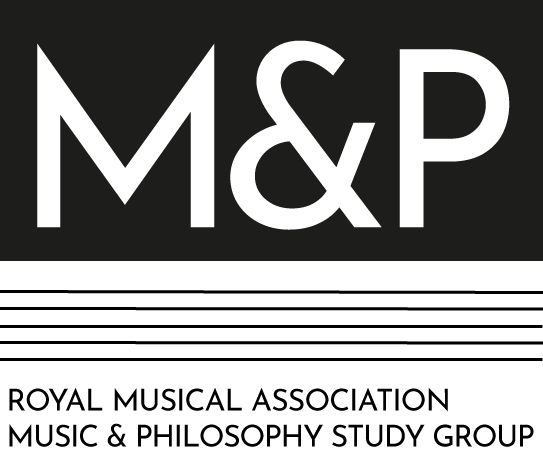The study of temporality has been of central importance to music scholarship since the pioneering work of Jonathan Kramer, Edward T. Cone, David Epstein and others. This topic acts as a useful platform for scholars concerned with different historical periods, traditions and genres, to fruitfully exchange ideas and approaches. This study day aims to showcase a broad range of perspectives on issues of temporality, as well as critical responses to the foundations and assumptions of previous work in this field. We are delighted to be joined by Dr Edward Venn (University of Leeds) who will be talking on multiple temporalities in the work of Thomas Adès.
The conference is preceded by, ‘Keeping Time: Music, Metronomes, Machines’, an event produced by Dark Inventions at the National Centre for Early Music on 12 June as part of the York Festival of Ideas. Issues of temporality are explored in a rare rendition of György Ligeti’s Poème Symphonique for 100 metronomes, alongside a performance by Jonathan Sage (clarinet) and Delia Stevens (percussion) of new music exploring issues of time.
The act of musical analysis is insepar
able from a perceptual experience, either implicit or explicit, either stored in shorter or long
–
term memory. The
cognitive abilities of abstraction involved in musical analysis
–
categorization, segmentation, discrimination, representation, memorization,
reading (for
written or transcribed music), etc.
–
are always linked to perceptions (delegated when the modeling of these processes result in automation). Even if they do
not have the same goals, nor the same methods, musicology, philosophy, anthropology,
science of techniques, psychoacoustics, psychology and
neuroscience of music are able to communicate on this issue of analysis and perception. Several analytical approaches (Delalande, 2013; Lalitte, 2015;
Lehmann, 1995; Lerdahl and Jackendoff, 1983; Lerda
hl, 2001, Leroy, 2004; Meyer, 1956; etc.) based their principles on perceptual
–
cognitive foundations
inspired by science perception. Inversely, philosophers, anthropologists and psychologists have often integrated musicological research in their respective
fields (Deleuze, 1985; Dowling et al, 1986; Frances, 1958; Krumhansl, 1990; Levi
–
Strauss, 1964; Sloboda, 1994; Zbikowski, 2002, etc.).
Although their objects of research and their methods differ, these disciplines may together explicitly consider the rela
tionship of analysis to perception, both
in written and unwritten music. More specifically, it will be a matter of questioning the place and role of:
perception (and science of perception) and modeling in the theories and methods of musical analysis, inclu
ding those using computers;
analysis in the perceptive process of the work, in a situation of hearing a live performance and/or a recording, in the case of a comparative typology
of listeners (composer, performer, musicologist, lambda listener);
practices
and theories of musical analysis in research of music perception;
perception in teaching musical analysis, and more generally in the teaching
of music.
These points will cross both knowledge and ages, without exception.
______________________________
Subm
ission deadline
(communications and posters ): September 10 2016
Applications for a 20 minute
s
talk
must include a title, a summary (1000 signs maximum, including spaces) and a brief biography of the applicant
(500 signs, including spaces). They
should
be
sent to
contact@sfam.org
.
Response to applications:
October 10
2016
SCIENTIFIC COMMITTEE
Moren
o
A
NDREATTA
(CNRS, IRCAM), Filippo B
ONINI
B
ARALDI
(Instituto
de Etnomusicologia (INET
–
md) de
l’Université
Nouvelle de L
isboa),
Emmanuel B
IGAND
(Université de Bourgogne Franche
–
Comté
),
Philippe
C
ATHE
(Université Paris
–
Sorbonne)
,
Franç
ois
D
ELALANDE
(INA/GRM),
Grazia
G
IACCO
(Université
de Strasbourg),
Philippe
G
ONIN
(Université de Bourgogne Franche
–
Comté
),
Philippe
L
ALITTE
(U
niversité de Bourgogne
Franche
–
Comté
), Marie
–
Noë
lle
M
ASSON
(Université
Rennes 2),
François
M
ADURELL
(Université Paris
–
Sorbonne),
Nicolas
M
EEUS
(Université
Paris
–
Sorbonne),
Pierre
M
ICHEL
(
Université de Strasbourg
)
, Barbara
T
ILLMANN
(CNRS, UMR5292, INSERM,
U
1028)
,
Bénédicte
P
OULIN
–
C
HARRONNAT
(CNRS,
LEAD UMR 5022)
,
Frédéric
V
OISIN
(Université de Bourgogne)
EXECUTIVE COMMITTEE
Philippe
G
ONIN
, Philippe
L
ALITTE
,
Marie
–
Noëlle
M
ASSON
,
Frédéric
V
OISIN



